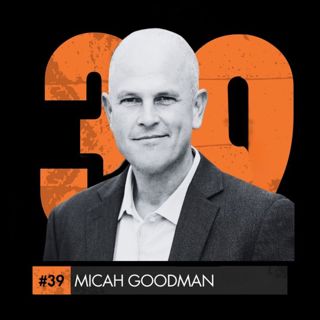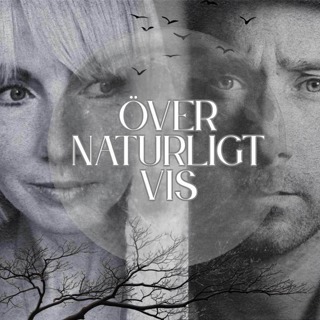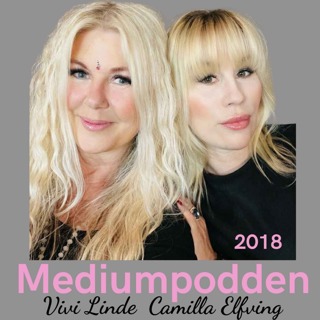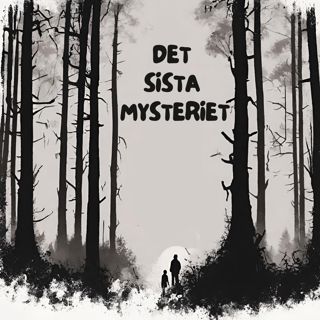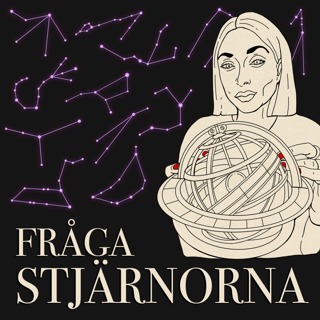![Rabbi Jacob J. Schacter: Should We Censor Jewish History? [Censorship 3/3]](https://cdn.podme.com/podcast-images/D79089FBEF78B78B9B1A2A8AFD27F6A1_small.jpg)
Rabbi Jacob J. Schacter: Should We Censor Jewish History? [Censorship 3/3]
In this episode of the 18Forty Podcast, we talk to Rabbi Jacob J. Schacter - rabbi, professor, and historian - about censorship as it relates to Jewish history.Though censorship exists in many areas, it is particularly interesting to analyze it from the lens of Jewish history. It can be tempting to idealize the lives of gedolim when writing about them, or to whitewash parts of history that don’t fit with our modern conceptions. It can be tricky to navigate history while preserving a given set of values.- How should we study Jewish history?- Is there room for idealization or censorship?- Or should we always seek the historical truth?- What should we do when history is problematic in the face of our values?Tune in to hear a conversation on censorship and Jewish history.References:Zakhor by Yosef Hayim Yerushalmi https://www.amazon.com/Zakhor-Jewish-History-Lectures-Studies/dp/0295975199On the Morality of the Patriarchs: Must Biblical Heroes be Perfect by Rabbi JJ Schacter https://www.academia.edu/37135943/Jacob_J_Schacter_On_the_Morality_of_the_Patriarchs_Must_Biblical_Heroes_be_Perfect_in_Zvi_Grumet_ed_Jewish_Education_in_Transition_Proceedings_of_the_First_International_Conference_on_Jewish_Education_Teaneck_2007_1_9Changing the Immutable by Marc Shapiro https://www.amazon.com/Changing-Immutable-Orthodox-Judaism-Rewrites/dp/1904113605Facing the Truths of History by Rabbi JJ Schacter https://www.yutorah.org/lectures/lecture.cfm/704426/rabbi-dr-jacob-j-schacter/facing-the-truths-of-history/Rabbi Jacob Emden: Life and Major Works by Rabbi JJ Schacter https://www.google.com/books/edition/Rabbi_Jacob_Emden/-wMmAQAAIAAJ?hl=en For more, visit https://18forty.org/censorship/. Rabbi Jacob J. Schacter is a rabbi and historian of intellectual trends in Orthodox Judaism. As a Rosh Yeshiva and professor of Jewish History and Jewish Thought at Yeshiva University, Rabbi Schachter lives at the crossroads of the religious and academic worlds. Rabbi Schachter holds a Ph.D. in Near Eastern Languages from Harvard University, where he wrote his dissertation on Rabbi Yaakov Emden. He is the author of several works, and is a mentor to many rabbis in the Jewish community. Rabbi Schachter brings to 18Forty his knowledge, wisdom, and nuanced thinking about the questions of censorship and how we approach Jewish history.Become a supporter of this podcast: https://www.spreaker.com/podcast/18forty-podcast--4344730/support.
15 Juni 20211h 30min
![Jonathan Rosenblum: Communal Boundaries and Cancel Culture [Censorship 2/3]](https://cdn.podme.com/podcast-images/D79089FBEF78B78B9B1A2A8AFD27F6A1_small.jpg)
Jonathan Rosenblum: Communal Boundaries and Cancel Culture [Censorship 2/3]
In this episode of the 18Forty Podcast, we talk to Jonathan Rosenblum - journalist and author of multiple ArtScroll biographies - about censorship and specifically how it applies to biographies.One of the many areas in which censorship can be exercised is biography writing. Certain biographies of gedolim have been criticized for censoring their life stories to mask their imperfections, distorting history in the process. But censorship isn’t always about distorting the facts and may instead be about cultivating a certain look or feel.- What is the goal of censoring the biographies of gedolim?- What impact does it have?- What are the intended effects of the biographies in the first place?- What effects would the uncensored versions have?Tune in to hear a conversation on biographical censorship.References:The Censor, the Editor, and the Text by Amnon Raz-KrakotzkinHidden Diaries and New Discoveries by Avinoʻam RozenaḳPachad Yitzchak: Igrot U’ketavim by Rav Yitzchok HutnerSin•a•gogue by David BashevkinThey Called Him Mike by Jonathan RosenblumBetween Berlin and Slobodka by Hillel GoldbergFor more, visit https://18forty.org/censorship/.Jonathan Rosenblum is a journalist who writes for several Orthodox media publications, most notably through his weekly column in Mishpacha. Before entering journalism, Jonathan attended the University of Chicago, Yale Law School, and Ohr Somayach. Jonathan has written several biographies on Jewish figures, and was a founding writer of the Cross-Currents journal. Jonathan brings to 18Forty his commitment and dedication to the spheres of Jewish public opinion, politics, and religious culture.Become a supporter of this podcast: https://www.spreaker.com/podcast/18forty-podcast--4344730/support.
8 Juni 20211h 3min
![Altie Karper: When a Book Is Banned [Censorship 1/3]](https://cdn.podme.com/podcast-images/D79089FBEF78B78B9B1A2A8AFD27F6A1_small.jpg)
Altie Karper: When a Book Is Banned [Censorship 1/3]
In this episode of the 18Forty Podcast, we talk to Altie Karper, editorial director of Schocken Books, about censorship and cancel culture.Every community has boundaries, and every community needs a way to enforce those boundaries. As Altie’s experience publishing a book that received religious pushback tells us, it can be hard to gauge if something will be deemed appropriate. If a public figure says something that doesn’t fit within the boundaries of a community, there should be criticism, but this criticism can easily become sharp and unjust. We must ultimately remember that there are people behind the mistakes and they deserve to be given some benefit of the doubt.- What amount of censorship is ok and what amount is too far?- How should one criticize a public figure for saying something inappropriate?- What kinds of criticism go too far?- What is the difference between communal boundaries and cancel culture?Tune in to hear a conversation on censorship, criticism, and cancellation.References:One People, Two Worlds by Ammiel Hirsch, Yaakov Yosef Reinman For more, visit https://18forty.org/censorship/. Altie Karper is the editorial director of Schocken Books, a division of Penguin Random House. Schocken has a long history as a major publisher of Jewish literature and an early publisher of great thinkers such as Kafka, Rosenzweig, Buber, and Agnon, among many others. As one of the leading names in Jewish publishing, Altie has worked on many of the great (and controversial) books of our time. No stranger to censorship battles, Altie brings to 18Forty her decades of thoughtful experience in the world of books, the Jewish community, and the boundaries around our ideas.Become a supporter of this podcast: https://www.spreaker.com/podcast/18forty-podcast--4344730/support.
1 Juni 20211h 15min
![Protecting us from Ourselves: An Anonymous Perspective on Divorce [Agunah Crisis 4/4]](https://cdn.podme.com/podcast-images/D79089FBEF78B78B9B1A2A8AFD27F6A1_small.jpg)
Protecting us from Ourselves: An Anonymous Perspective on Divorce [Agunah Crisis 4/4]
In this episode of the 18Forty Podcast, we talk to an anonymous divorced man who gives us his perspective on the divorce process and the need to protect oneself from his own darkest inclinations.While one would never assume themselves capable of get (divorce document) refusal, the emotions of uncoupling run high and it's possible to find yourself considering using the get as a bargaining chip. We sit down with a man who was in this exact predicament and he explains why the get should never be used in this way and how signing a halakhic prenup protects both people in the dissolving marriage.-What role do community leaders, rabbeim, and therapists play in a couple's divorce process?-What should one do post divorce to better themselves?-What can men do to protect themselves from even the consideration of get refusal?-How important is the halakhic prenup for all communities?Tune in to hear a conversation on divorce, granting a get, and what can be done to protect against our baser instincts.References:To Heal a Fractured World by Rabbi Jonathan SacksThe Road Less Traveled by Scott PeckGame Plan for Life by Joe GibbsFor more, visit https://18forty.org/agunahBecome a supporter of this podcast: https://www.spreaker.com/podcast/18forty-podcast--4344730/support.
11 Maj 20211h 7min
![Bari Mitzmann: Social Media & Agunah Advocacy [Agunah Crisis 3/4]](https://cdn.podme.com/podcast-images/D79089FBEF78B78B9B1A2A8AFD27F6A1_small.jpg)
Bari Mitzmann: Social Media & Agunah Advocacy [Agunah Crisis 3/4]
In this episode of the 18Forty Podcast, we talk to Bari Mitzmann - Instagram content creator and host of the Women of Valor podcast - about social media advocacy, particularly in regard to the agunah crisis.With an Instagram audience of 30,000 followers, Bari is often asked to promote causes. One such cause was the recent #FreeChava campaign where Bari's promotion helped spark recent support for agunot. While posting about advocacy on social media seems like a natural thing to do, it can be hard to verify information about the causes being posted. Bari therefore likes to be careful about what she posts, posting sparingly to ensure maximum effectiveness.Does Bari use her account for advocacy? What kind of advocacy works best on social media? Why did she choose to advocate regarding the agunah crisis? What boundaries can be established on social media to maintain agency and sanity? Tune in to hear Bari Mitzmann reflect on her social media advocacy and the role she played in recent agunah advocacy.References:Women of Valor podcast with Bari MitzmannFor more, visit https://18forty.org/agunah/.Bari Mitzmann is a content creator, wife, and mother of two, who partners with women of all backgrounds to provide personal growth support. Bari holds a BA in Psychology, a Masters in Education, and has a large following on Instagram, where she thinks and talks about nutrition, social change, and the world of Jewish women. Bari is the host of the Woman of Valor podcast, which offers candid conversation and practical advice for the modern woman. Bari joins 18Forty to discuss social advocacy, change, and how to build a better world through social media.Become a supporter of this podcast: https://www.spreaker.com/podcast/18forty-podcast--4344730/support.
4 Maj 20211h 10min
![Keshet Starr: How Should we Advocate for Agunot? [Agunah Crisis 2/4]](https://cdn.podme.com/podcast-images/D79089FBEF78B78B9B1A2A8AFD27F6A1_small.jpg)
Keshet Starr: How Should we Advocate for Agunot? [Agunah Crisis 2/4]
In this episode of the 18Forty Podcast, we talk to Keshet Starr - CEO of ORA - about what it’s like to work on the front lines of agunah activism. As the CEO of ORA - the Organization for the Resolution of Agunot - Keshet is directly involved with many cases of get-refusal, working with both parties to ensure a satisfactory resolution. She is also involved in agunah advocacy - both for specific agunot and to raise awareness for the issue in general - and prevention. While many are averse to the concept of prenups, as it makes them uncomfortable, Keshet works to normalize and publicize the halakhic prenup, as well as other agunah prevention tactics. What does a typical agunah case look like? What steps does ORA take when helping an agunah? Do they protest on social media and at the get-refuser’s home immediately, or first verify the details of the case and develop a plan of action? Who does the prenup benefit and how does it give newlyweds insurance? Does it create a standard for marriage that’s better for everyone? Tune in to hear Keshet Starr reflect on her work in agunah advocacy, and the contributions she’s made as the CEO of ORA.References:Tears of the Oppressed by Aviad HacohenMeishiv Milchama by Rav GorenMarriage, Divorce, and the Abandoned Wife in Jewish Law by Michael BroydeGray Matter by Chaim JachterDaring Greatly by Brene Brown For more, visit https://18forty.org/agunah/. Mrs. Keshet Starr, Esq., is the Executive Director of the Organization for the Resolution of Agunot (ORA), the leading nonprofit organization addressing the agunah (Jewish divorce refusal) crisis worldwide. At ORA, Keshet oversees advocacy, early intervention, and prevention initiatives to eliminate abuse from the Jewish divorce process. Keshet is a Wexner field fellow and a graduate of the University of Pennsylvania Law School. Keshet has written and lectured widely on issues relating to divorce, domestic abuse, and the intersection between civil and religious divorce processes. Keshet brings to 18Forty her passion, wisdom, and commitment to bringing change to individuals and the Jewish world.Become a supporter of this podcast: https://www.spreaker.com/podcast/18forty-podcast--4344730/support.
27 Apr 20211h 3min
![Rabbi Shlomo Weissman: The Rabbinic Will and Agunot [Agunah Crisis 1/4]](https://cdn.podme.com/podcast-images/D79089FBEF78B78B9B1A2A8AFD27F6A1_small.jpg)
Rabbi Shlomo Weissman: The Rabbinic Will and Agunot [Agunah Crisis 1/4]
In this episode of the 18Forty Podcast, we talk to Rabbi Shlomo Weissman - head of Beth Din of America, YU Professor, and former lawyer - about the halakhic complexities of, and attempted solutions for, the agunah crisis. A halakhic divorce contract, called a “get,” must be given from the husband to wife, and the parties must give/receive the get willingly. When one or the other party doesn’t willingly participate in this process, the marriage cannot be ended, leaving the woman unable to remarry by Jewish law. Traditionally this has lead to women being unable to remarry when their husbands disappeared, but the issue of get-refusal - of husbands refusing to divorce their wives, maybe for leverage or spite, leaving them unable to remarry - is a more recent phenomenon. Among the topics covered, we discuss the following: What is the scope of the agunah crisis, and more specifically of get-refusal? What halakhic mechanisms does it involve? What makes this problem harder to solve than other problems relating to halakhic contracts? What solutions have been proposed in the past? Tune in to hear Rabbi Shlomo Weissman explain the complexities of this issue, and help contextualize it both in Torah and in modern society. References:The Power of Moments by Chip and Dan Heath Scholarly References:Rabbi Yitzchak Breitowitz For more, visit https://18forty.org/agunah/.Rabbi Shlomo Weissman serves as the Menahel/Director of the Beth Din of America, one of the foremost institutions for rabbinic legal adjudication. Shlomo received rabbinic ordination from RIETS and is a graduate of Columbia Law School, where he was a Harlan Fiske Stone Scholar. Prior to his association with the Beth Din of America, Rabbi Weissmann worked as an attorney at several prominent law firms, including Debevoise and Plimpton LLP. Shlomo lectures widely on the interface of Jewish and secular law, and is an Adjunct Professor at the Sy Syms School of Business at Yeshiva University. Shlomo brings his decades of knowledge, experience, and dedication to helping agunot to his conversation with 18Forty.Become a supporter of this podcast: https://www.spreaker.com/podcast/18forty-podcast--4344730/support.
20 Apr 20211h 28min
![Andrew Solomon: Far from the Tree [Divergence 4/4]](https://cdn.podme.com/podcast-images/D79089FBEF78B78B9B1A2A8AFD27F6A1_small.jpg)
Andrew Solomon: Far from the Tree [Divergence 4/4]
In this episode of the 18Forty Podcast, we talk to Andrew Solomon - a Pulitzer Prize finalist - about intergenerational divergence, as well as his book, Far from the Tree, which was in some ways the very inspiration for this topic. Andrew’s experience with intergenerational divergence began as a child, when his gay identity imbued him with a sense of outsiderness that is evident in his work. His book, Far from the Tree, deals with this topic explicitly, exploring the impact of things like deafness on a family’s ability to relate to and provide for their child. Andrew’s distinction between vertical and horizontal identities, referring to the ways in which the child relates to and is distinct from their family, is profound and underlies much of the message 18Forty has tried to convey this month. Among the topics covered, we discuss the following: What can lead a child to seek support outside of their family? How can parents best prepare for the possibility that their child will be different than they imagined? In such a situation, how can parents best help their child? In the event that they are unable to provide the support the child needs, how should the parents proceed? Tune in to hear Andrew Solomon give his thoughts on coping with generational differences.References:Far from the Tree by Andrew SolomonWelcome to Holland by Emily Perl KingsleyThe Noonday Demon by Andrew SolomonSound of Metal on AmazonFar and Away by Andrew SolomonAn Epistle to the Hebrews by Emma LazarusTorn in Two by Rozsika ParkerFor more, visit https://18forty.org/topics/divergence.Andrew Solomon, Ph.D., is a writer and lecturer on politics, culture and psychology; winner of the National Book Award; and an activist in LGBTQ rights, mental health, and the arts. He is Professor of Clinical Medical Psychology (in Psychiatry) at Columbia University Medical Center, Lecturer in Psychiatry at Yale University, and a former President of PEN American Center.Become a supporter of this podcast: https://www.spreaker.com/podcast/18forty-podcast--4344730/support.
5 Apr 20211h 11min
